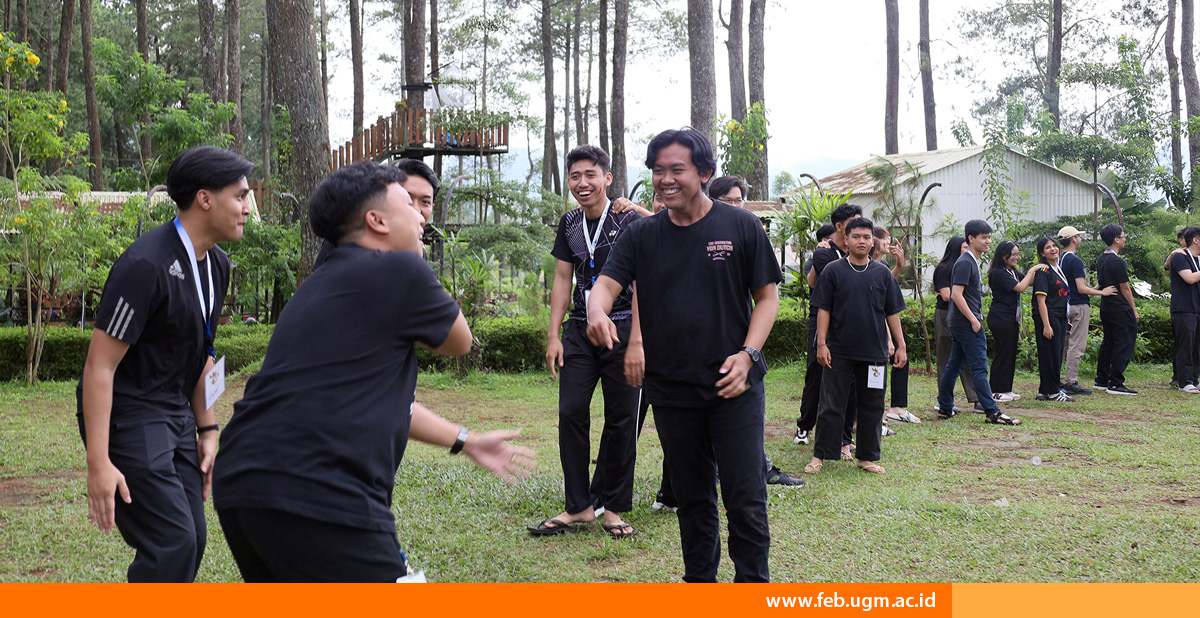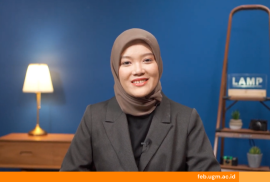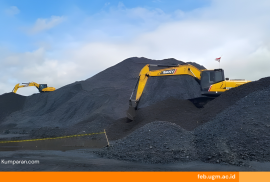
Fourteen students from the Faculty of Economics and Business (FEB) UGM had the opportunity to immerse themselves in entrepreneurship through the NUS Startup Ecosystem Exposure 2025 program. For eight days, from January 5 to 12, 2025, they engaged in hands-on learning about startups and innovative businesses with students from the National University of Singapore (NUS) and other universities in Indonesia.
How did they overcome challenges, adapt to an international environment, and gain valuable insights from business mentors? Here’s the inspiring journey of Apriana Vika Vianbara (Management 2021) and M. Zhorif Asyraf (Management 2022), who successfully became part of the NUS Startup Ecosystem Exposure 2025.
For Apriana Vika Vianbara and M. Zhorif Asyraf, participating in the NUS Startup Ecosystem Exposure (SEE) 2025 was more than just an academic experience. It was a strategic step to expand their knowledge and develop their skills in the entrepreneurial world.
Apriana shared that her primary motivation was to gain international exposure and deepen her understanding of startups and business. Meanwhile, Zhorif saw this program as a unique opportunity to understand the global business and startup ecosystem.
Both Apriana and Zhorif were enthusiastic about the eight-day program, which included the development of business ideas and a final pitch.
“We learned through talk shows, lectures, company visits to different startups and incubators, and interactive games,” Apriana explained.
In addition to gaining insights into business and startups, Zhorif and the other participants also immersed themselves in Indonesia’s local culture. They explored cultural heritage sites such as Saung Angklung Udjo and visited popular tourist attractions in Lembang, Bandung.
Throughout the program, Apriana and Zhorif faced significant challenges, including communicating with international participants. In addition, they had to prepare a pitch deck within a short timeframe while managing a tight daily schedule. Despite this, they managed their time and worked effectively as a team.
Before participating in the NUS Startup Ecosystem Exposure 2025, Apriana and Zhorif had high expectations from the program. However, their experience far exceeded their initial expectations. Apriana was particularly impressed with the program.
“Not only did we learn from mentors through talk shows, but we also formed teams with students from different universities, analyzed real problems in Indonesia, and created business solutions based on those challenges. We even received professional mentorship and presented our ideas to experienced business practitioners,” she said.
For Zhorif, the experience not only met but exceeded his expectations. In addition to learning from the mentoring sessions and lectures, he had the opportunity to meet new people from diverse backgrounds who provided him with unique and inspiring perspectives.
Zhorif fondly remembers when his team’s hard work paid off, and they won the competition. Their solution was one of the best ideas for addressing Metland’s challenges. The achievement became even more meaningful when Metland’s executives, including the company’s director, expressed interest in their microalgae wall concept.
“We were thrilled when Metland even opened the possibility for further discussions to implement our solution in their projects. This experience taught us about time management and teamwork and gave us a sense of fulfillment and pride in our hard work,” said Zhorif excitedly.
Through this program, Zhorif realized the importance of resilience in overcoming challenges in the startup and entrepreneurial world. One of the most powerful messages he received came from program speaker Armand Hartono, who said,
“Success is not just about intelligence or skill, but also about the ability to rise from failure, learn from every experience, and keep moving forward with determination.”
This message resonated deeply with him, as he understood that building a startup is full of challenges that require perseverance, creativity, and a passion for the process.
Meanwhile, Apriana encouraged other FEB UGM students to take advantage of this program by seeking information from the Student Wellness and Personal Development Center (SWPDC) and FEB UGM’s Career and Student Development Unit (CSDU). She advised students to prepare thoroughly before attending to get the most out of the program. She also stressed the importance of confidence and active participation in the program to foster innovation and problem-solving skills.
“Don’t forget to stay confident and enjoy the process because this experience is a valuable opportunity to learn and grow,” Apriana concluded.
Report by: Shofi Hawa Anjani
Editor: Kurnia Ekaptiningrum
Sustainable Development Goals








